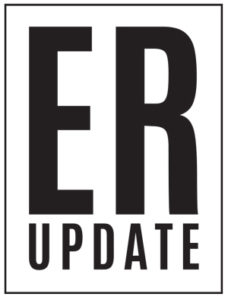
The unpaid parental leave (‘UPL’) and compassionate leave entitlements in the National Employment Standards (‘NES’) located in the Fair Work Act 2009 have been amended, due to legislation which took effect on 27 November 2020.
The amendments provide for the ability to take UPL in a more flexible manner, as well as new UPL and compassionate leave entitlements for employees who experience a stillbirth, death of a child during the first 24 months of life, or where a newborn has to be hospitalised.
The ER Department is currently in the process of updating the relevant QHA fact sheets and the HR Manual. In the meantime, below is a general summary of the changes.
Flexible UPL
Employees will now be able to take up to 30 days of their unpaid parental leave, as flexible UPL during the 24 month period following the date of the child’s birth / adoption. The 30 days comes out of the employee’s existing entitlement to 12 months of unpaid parental leave. It is not an additional entitlement to more time off.
The flexible UPL can be taken as either:
- A single continuous period of one or more days, or
- Separate periods of one or more days each.
UPL and compassionate leave entitlements in relation to stillbirth, premature birth or infant death
The explanatory memorandum to the Bill which ultimately led to the amendment of the UPL and compassionate leave provisions in the NES, provides an overview of the specific changes. These changes:
- ensure that the entitlement to UPL is available in full to parents of a stillborn baby as it would have been if their baby had lived;
- remove the ability of employers to recall employees on UPL back to work or cancel any upcoming planned period of UPL for which the employee has given notice if the child is stillborn or dies within the first 24 months of life;
- provide that an employee who is not on UPL when the child is stillborn, may still take UPL even if they have not previously given notice of the taking of UPL;
- provide parents with the entitlement to take compassionate leave while on UPL if their child to which the UPL relates is stillborn or dies;
- amend the entitlement to compassionate leave to make clear that an employee can take compassionate leave in relation to a stillborn child; and
- provide that where a baby remains in hospital or is hospitalised immediately following birth, the employer and employee can agree to the employee returning to work while their baby is in hospital and recommencing their UPL when the baby is discharged.
As this summary of the changes to UPL and compassionate leave is of a general nature only, members are encouraged to seek assistance for any specific scenarios that may arise in their workplace.

